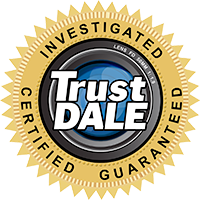Moisture: A Silent Threat to Indoor Air Quality

Moisture, often an overlooked factor in home comfort, can significantly impact indoor air quality (IAQ). Excessive humidity can create a breeding ground for mold, bacteria, and other harmful contaminants, leading to a range of health problems.
How Moisture Affects IAQ
- 1. Mold Growth: Mold thrives in damp environments. When moisture levels are high, mold spores can quickly germinate and spread throughout your home. Mold can cause allergic reactions, respiratory problems, and even serious health issues for individuals with compromised immune systems.
- 2. Bacteria and Viruses: High humidity can also promote the growth of bacteria and viruses. These microorganisms can contribute to a variety of illnesses, including colds, flu, and pneumonia.
- 3. Dust Mites: Dust mites, tiny arachnids that feed on dead skin cells, thrive in humid environments. These pests can trigger allergies and asthma attacks in susceptible individuals.
- 4. Musty Odors: Excessive moisture can lead to a musty or unpleasant odor in your home. This odor can be caused by mold, mildew, or other contaminants.
Signs of High Humidity
- Condensation: You may notice condensation on windows, walls, or ceilings.
- Mold Growth: Look for signs of mold, such as dark spots or patches. Especially in your crawl space floor joists and insulation and in your basement on the concrete block wall.
- Musty Odors: A musty or unpleasant smell in your home is often a sign of high humidity in your basement or crawl space.
- Health Problems: If you or your family members are experiencing respiratory problems, allergies, or other health issues, high humidity may be a contributing factor.
How to Manage Indoor Humidity
- Ventilation: Ensure proper ventilation in your home by opening windows, using exhaust fans, and running your HVAC system regularly. Also, check your crawl space or basement. This is the one place there should not be airflow. Most basements and crawl spaces have vents, this is an antiquated idea that you need airflow in these areas. Outside air in the basement or crawl space will trap moisture and it will creep into your home.
- Dehumidifier: Consider using a dehumidifier to remove excess moisture from the air in your crawl space or basement.
- Address Leaks: Repair any leaks in your crawl space or basement to prevent water damage.
- Proper Maintenance: Regularly clean and maintain your HVAC system to ensure it operates efficiently. Also regularly inspect your crawl space or basement for moisture issues, musty smells, or signs of damage like water lines on the concrete block or water pooling on the floors, as well as any dripping insulation or mold growth.
By understanding the impact of moisture on indoor air quality and taking steps to manage humidity levels, you can create a healthier and more comfortable living environment for yourself and your family. Remember that 50 percent of the air you breathe on the first floor of your home is coming up from your crawl space or basement.
 4.9
4.9 



